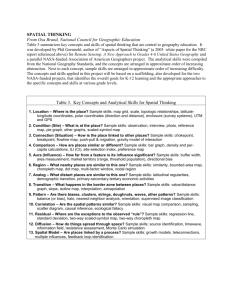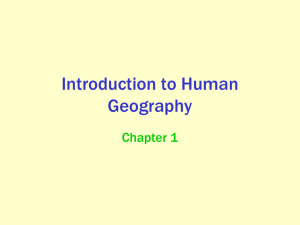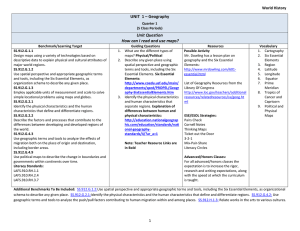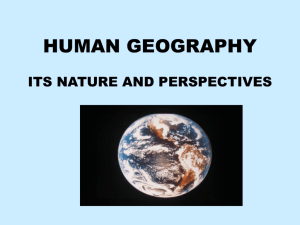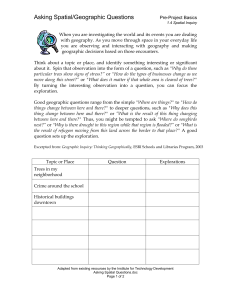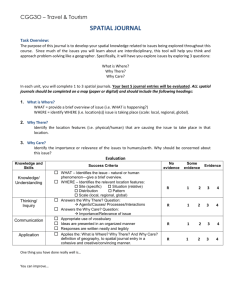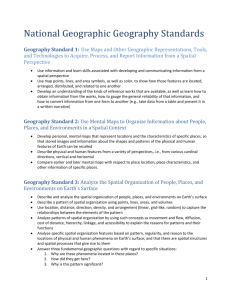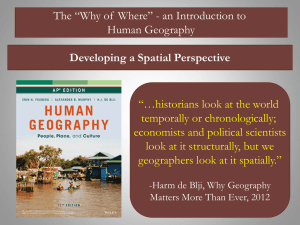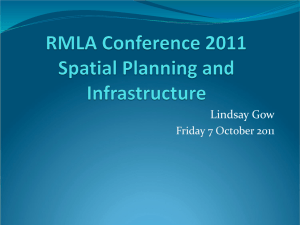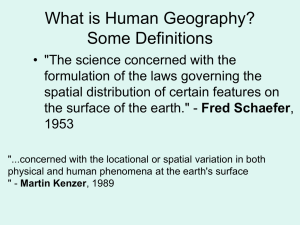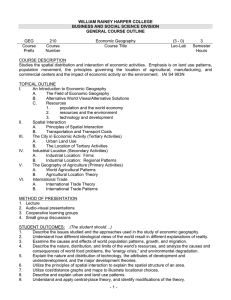Unit 1 Geographic Perspective
advertisement
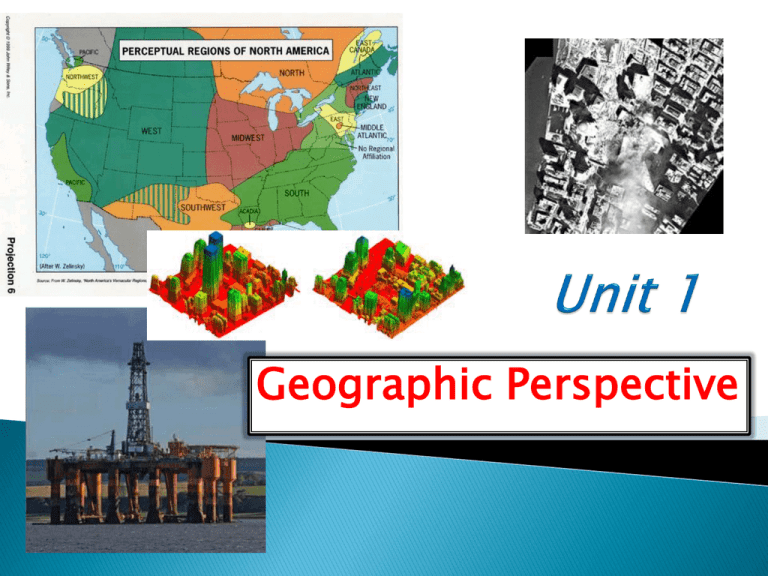
Geographic Perspective On a piece of paper, quick write what comes to your mind when you think about “geographic perspective” A geographic perspective is a way of looking at and understanding the world. When you view the world through the lens of geography, you are asking who, what, where, and when people, places, and things are distributed across the surface of the earth, and why and how they got there. In other words, it means that you are analyzing something within its spatial, historical, cultural, political, and physical contexts. You can study anything that has some spatial component to it from this perspective. All things—whether they are rivers, cities, populations of people, or events—exist in a particular place and in a particular time for a set of specific reasons http://www.nationalgeographic.com/xpeditions/lessons/05/g68/in dex.html In what ways are Humans and the Earth connected to each other? How do perspectives help us analyze people, places and the environment? SPATIAL PERSPECTIVE How do spatial perspectives help us to analyze people, places and environments? I. The Spatial Perspective A. Maps: the cartographic tradition has always been unique to geography. B. Scale 1. Global/Regional/Local 2. Interaction across scales C. Location 1. Absolute Location: latitude and longitude coordinates 2. Relative Location: location in relation to other places 3. Site vs. Situation a. Site: actual place and its physical characteristics b. Situation: external reference or context of the place D. Distance 1. Absolute Distance: measured in a standard metric 2. Relative Distance: measured in time or economics E. Direction 1. Absolute Direction: North, South, East, West 2. Relative Direction: more colloquial, i.e. "the deep south," or "the far east II. Insights of Geography A. Places have location, direction, and distance with respect to other places B. Scale is important--places may be large or small C. A place has both physical structure and cultural content D. The characteristics of places develop and change over time E. Places interact with other places F. The content of places is rationally structured G. Places may be generalized into regions of similarities and differences How do spatial perspectives help us to analyze people, places and environments?
